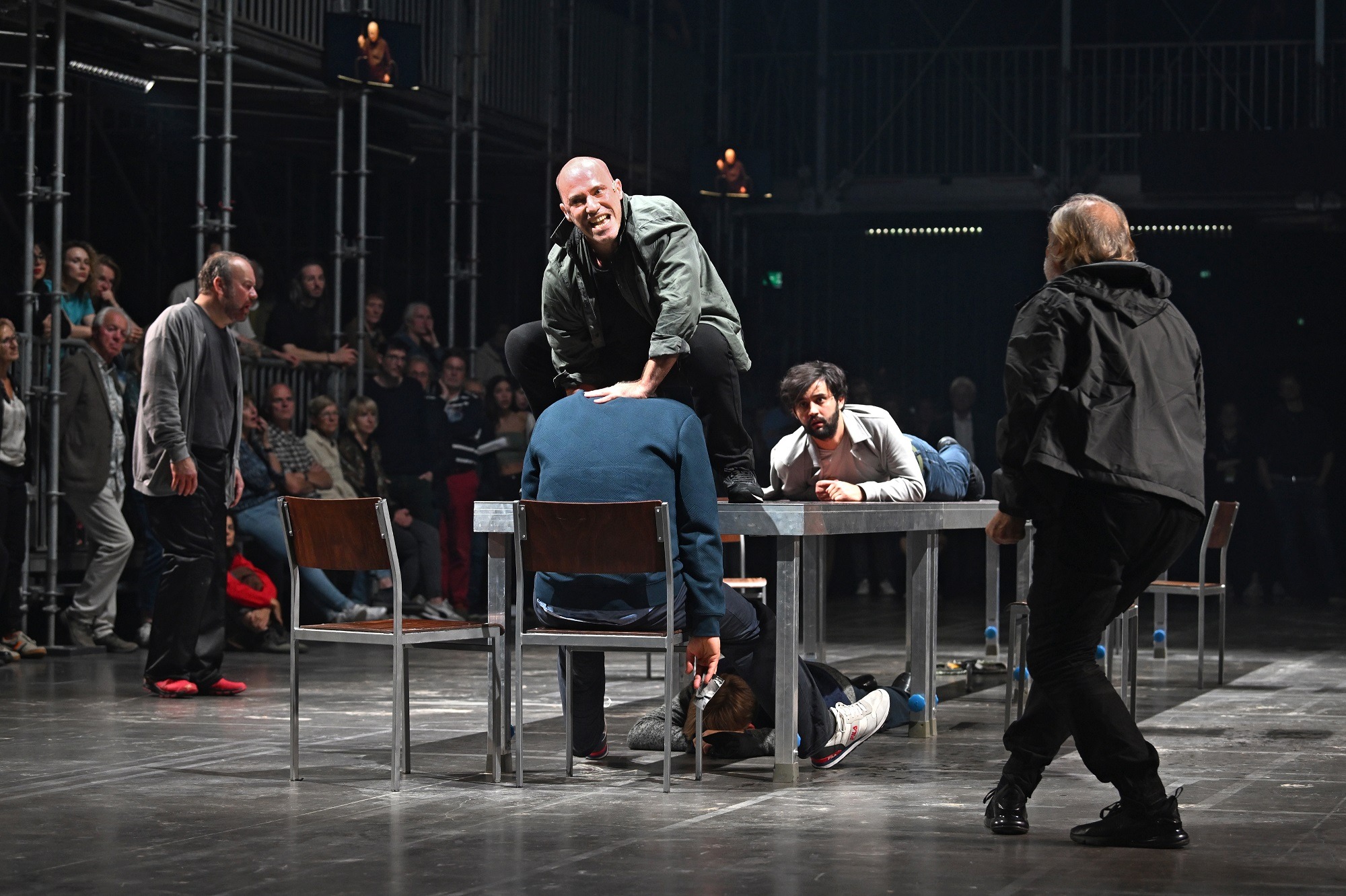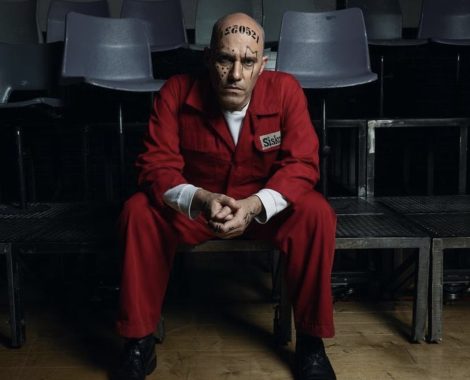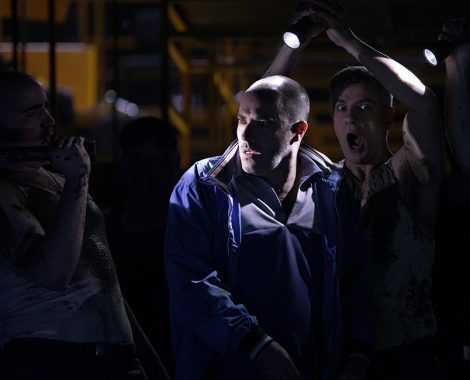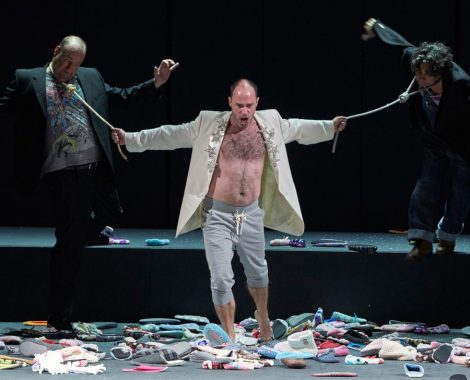Prospero in Thomas Adès' The Tempest at La Scala, Milan
Prospero non è il vecchio canuto, immerso nella consultazione dei suoi libri polverosi come vuole la tradizione teatrale, ma un prestante baritono (Leigh Melrose) dal torso tatuato, spesso impegnato nel registro più acuto, che scatena la tempesta per avere gli odiati usurpatori in proprio potere, ma viene preso di contropiede dalla figlia Miranda (la brava e appassionata Isabel Leonard, già nel cast originale del Met), che non ne rispetta l’autorità…
The cast was led by baritone Leigh Melrose, a magnetic Prospero, displaying an impressively voluminous and perfectly controlled, darkly colored voice.














